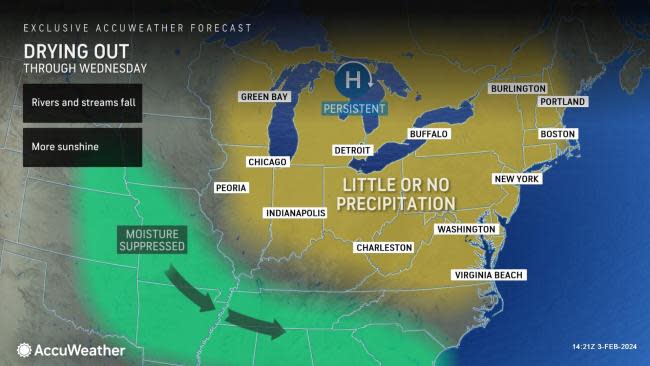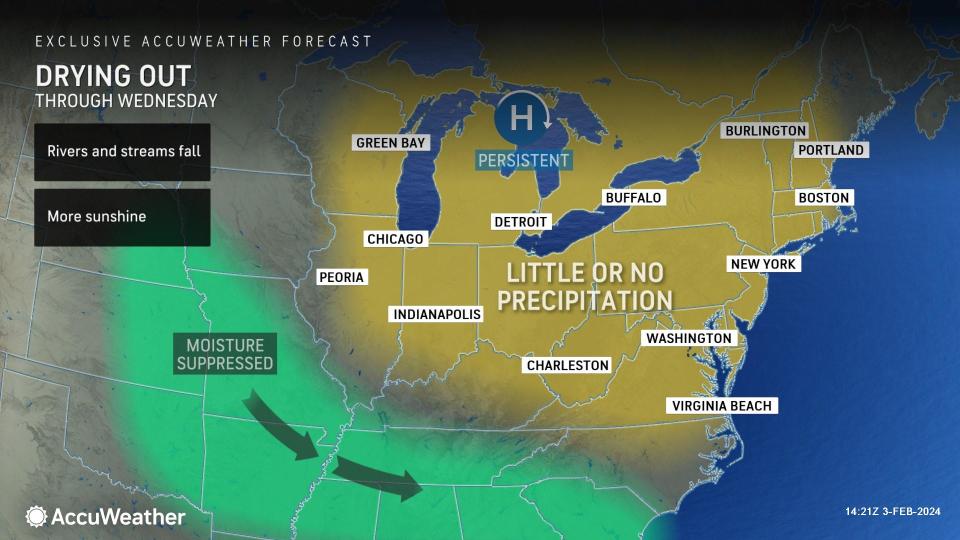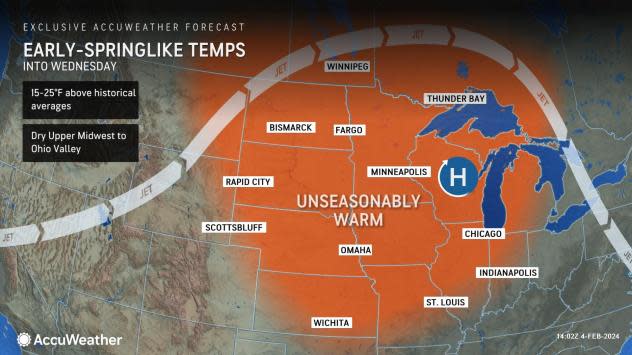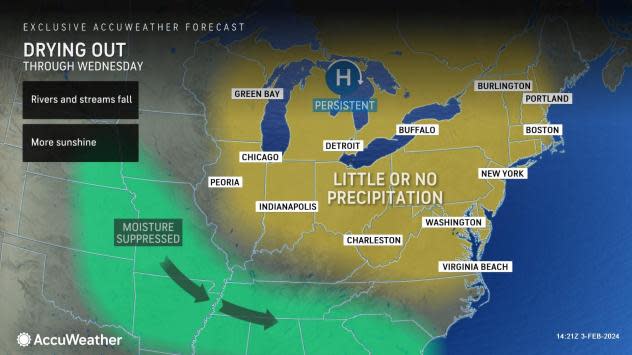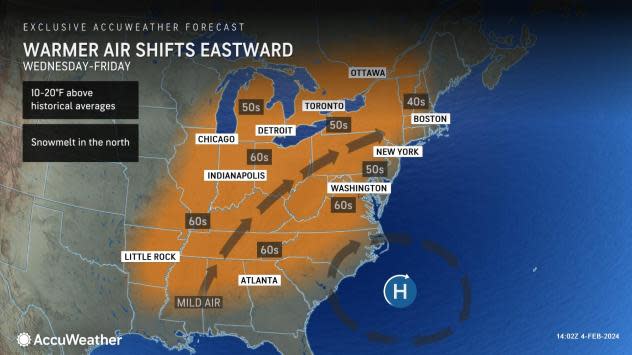Spring fever alert: plenty of sun, near-record warmth to grace millions in Midwest, Northeast
Mother Nature will make Punxsutawney Phil look like a meteorological genius over the next week or so, as an unseasonably warm, springlike pattern will set up across the Midwest, and even a portion of the Northeast, say AccuWeather meteorologists.
Accompanying the warmup will be abundant sunshine and an extended period of dry weather driven by a strong area of high pressure. This will be an abrupt shift from a very damp and cloudy weather pattern across much of the region.
"A large, northward bulge in the jet stream has driven all of the Arctic air out of the country," said AccuWeather Senior Meteorologist Joe Lundberg, "There's just nothing to replace it, leading to this very warm pattern for February."
 |
The springlike warmth kicked off earlier in the week across the north-central U.S. when numerous high-temperature records fell due to readings 10-20 degrees above the historical average to end January and begin February.
On Thursday, new record highs were established in numerous cities, including Fargo, North Dakota; Green Bay, Wisconsin; and Lincoln, Nebraska; as temperatures soared into the 40s and 50s. The most impressive record was in Waterloo, Iowa, where the mercury rose to 57, shattering the old mark of 48 from 1931 by 9 degrees. A day prior, International Falls, Minnesota, notched their first ever 50-degree day on record in January, when the mercury rose to 53 (records have been kept there for 129 years, since 1895).
Temperatures, which typically top out in only the 20s and lower 30s this time of year, will consistently rise into the 40s, 50s and even 60s through the new week, threatening more records and reaching levels more typical for early April than early February.
"Furthermore, snow cover across the northern Plains and the eastern Rockies is unusually low for early February and very patchy in nature," said Lundberg. "Because of that, there is no mechanism to hold temperatures back."
 |
The snow drought has also been pronounced in the Midwest, with only a meager 7.3 inches having fallen so far this winter in Minneapolis; this amount is only 24 percent of the historical average of 30.3 inches. Amazingly, Nashville has had more snow this winter (7.6 inches).
Since a lot of the sun's energy won't be focused on melting snow this time of year, that energy will instead go into raising temperatures. The sunny weather will also extend into the Northeast, where temperatures will not be as high as in the north-central U.S. but will still be a few degrees above historical averages for much of next week.
Sunshine in the region has been a rare treat. In Pittsburgh, January went down as the cloudiest month on record, as 28 out of 31 days featured overcast skies, according to Penn State's Weather World. Philadelphia was not far behind, with 22 of 31 days cloudy, coming off their record cloudiest month this past December. Plenty of sunshine is in the forecast for both Pennsylvania cities through at least late next week.
 |
The extended stretch of dry, sunny and mild weather presents pros and cons heading into the spring.
"The warmth, which has led to little snow on the ground, means little snowmelt going into spring," explained Lundberg. "This may aid in farmers getting fields planted more easily, but it might also mean quicker drying of fields and might be a precursor to drought conditions down the road."
AccuWeather's team of long-range forecasters expects a change in the dry and mild weather pattern, putting Punxsutawney Phil's prediction of an early spring in jeopardy.
"There are changes lurking," warned Lundberg. "A storm near Valentine's Day will likely help to draw cold air back into the pattern later that week, bringing an end to the 'early spring' in the northern Plains and Midwest."
Want next-level safety, ad-free? Unlock advanced, hyperlocal severe weather alerts when you subscribe to Premium+ on the AccuWeather app. AccuWeather Alerts™ are prompted by our expert meteorologists who monitor and analyze dangerous weather risks 24/7 to keep you and your family safer.

 Yahoo News
Yahoo News 